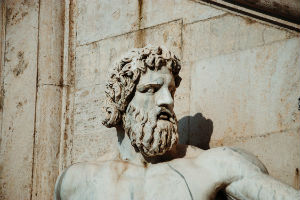Project to shed light on Britain's earliest Roman settlers
18 December 2019

A project that aims to change what we know about the earliest Roman settlers in Britain has been backed by a £82,000 grant from Arts Council England.
The Decoding the Dead project, a partnership between the University of Reading, Colchester Museums and Colchester Archaeological Trust, has been awarded the ‘Designation Development’ grant of £82,000 to explore Colchester's nationally important early Roman cremation burials.
This will enable the experts from these organisations to conduct cutting edge scientific analyses, helping to shed light on the lives and deaths of the early Roman and indigenous peoples in Britain's earliest Roman military base.
Professor Hella Eckardt, Roman archaeologist at the University of Reading, said: “So far, isotope and artefact analysis have focused on the later Roman period, but at Colchester we have a chance to go back further in time.
“Using the latest science, we can learn much more about the people who settled and died in the first Roman military base and town in Britain.”
The in-depth research will help to identify the age, sex and skeletal pathologies from the cremated remains, and give a better insight into the people – both indigenous and incoming individuals from throughout the Roman Empire.
Detailed isotopic analysis will help identify the broad geographical origins of some of the soldiers, bureaucrats and merchants who would have come to Colchester during the turbulent years of the Roman invasion of Britain. The studies will help challenge what we know already and improve our knowledge of this period of change.
Councillor Julie Young, Portfolio Holder for Culture and Performance and Deputy Leader of the Council, said: "We are delighted to have been given this amazing opportunity to work with Reading University on the Decoding The Dead project. This work will not only allow us to conduct fascinating cutting-edge research into our past, but also give us the opportunity to collaborate and explore the subject of death in our own society, something that we do not talk about enough.”
The findings of the study will feature in displays at both Colchester’s Roman Circus Centre and Colchester Castle in early 2021. There will also be new educational resources, highlighting the long-term history of migration in the UK.
